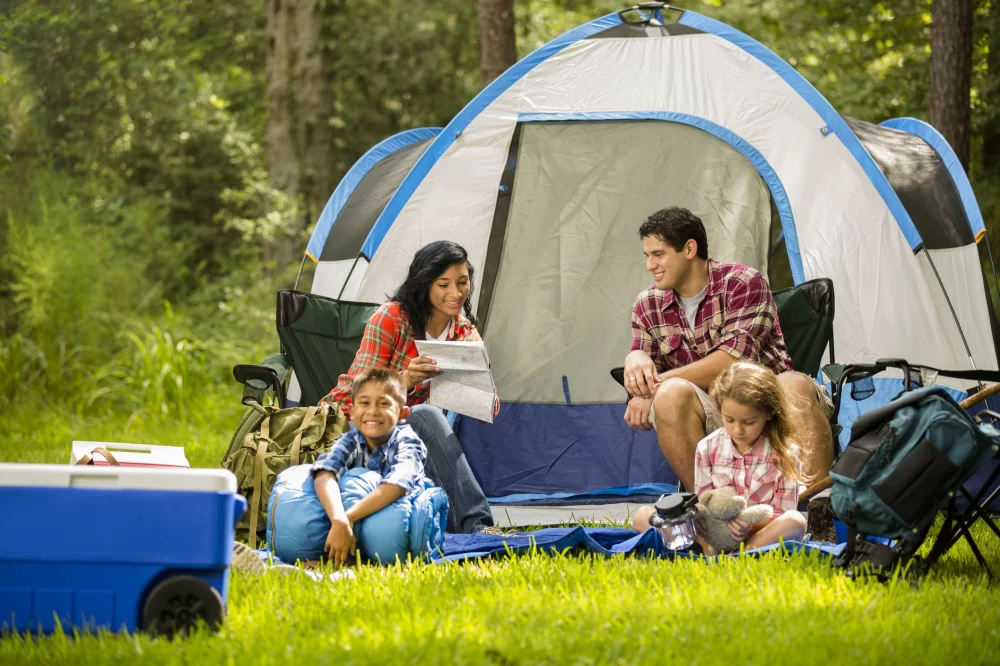Discover practical tips on how to camp with allergies in the USA. Learn allergy-friendly camping strategies and find trusted resources like Pine Cliff Resort for a safe, enjoyable outdoor adventure.

- 1-Preparing-for-Allergy-Friendly-Camping
- 2-Understanding-Common-Camping-Allergens
- 3-Strategies-for-Managing-Allergies-While-Camping
- 4-Choosing-the-Right-Campsite-and-Equipment
- 5-Real-Life-Experience-Camping-with-Allergies
- 6-Why-Pine-Cliff-Resort-is-Ideal-for-Allergy-Friendly-Camping
1. Preparing for Allergy-Friendly Camping
Camping is a wonderful way to connect with nature, but for individuals with allergies, it requires thoughtful preparation. Knowing how to camp with allergies in the USA starts well before the trip—careful planning ensures a comfortable and safe experience. Begin by identifying your specific allergies, whether they are pollen, insect bites, food, or pet dander. Understanding triggers allows you to pack necessary medications like antihistamines, EpiPens, and inhalers.
It’s also crucial to inform your travel companions about your allergies and your action plan. Preparation includes researching nearby medical facilities at your camping location and having emergency contact information readily accessible. This foresight can significantly reduce anxiety and help you enjoy the outdoors fully.
1.1 Medical Supplies and Documentation
Always bring extra allergy medications and keep them in waterproof containers. Carry a detailed allergy action plan and, if possible, wear a medical alert bracelet. Documenting your allergies clearly can be lifesaving in emergencies, especially in remote camping spots.
1.2 Communication with Camp Providers
When booking campsites, communicate your allergy needs upfront. Some campsites in the USA offer allergy-friendly options, such as hypoallergenic cabins or areas with reduced pollen exposure. Sites that are pet-free or have insect control measures can also be beneficial.
2. Understanding Common Camping Allergens
Allergy triggers in camping environments can vary widely. Common offenders include:
- Pollen: Trees, grasses, and weeds release pollen, which can be abundant during certain seasons depending on your location.
- Insect Bites and Stings: Mosquitoes, ticks, bees, and wasps are not only nuisances but potential allergy triggers or vectors for disease.
- Food Allergens: Outdoor cooking often involves shared food supplies, increasing the risk of cross-contamination for those with food allergies.
- Mold and Mildew: Damp environments can foster mold, a powerful allergen often overlooked in outdoor settings.
Knowing these allergens helps campers take proactive steps, such as timing trips to avoid peak pollen seasons or using insect repellents safely.
2.1 Seasonal and Regional Variations
The USA’s diverse climates mean allergens differ by region and season. For example, spring in the Southeast is notorious for high pollen counts, while the Southwest may present challenges with dust and certain insect populations. Checking local allergen forecasts can help plan the best time and place for camping.
3. Strategies for Managing Allergies While Camping
Managing allergies while camping involves both prevention and quick response strategies. Some practical tips include:
- Choosing hypoallergenic gear: Use sleeping bags and tents made of materials less likely to trap allergens.
- Protective clothing: Wear long sleeves and pants to reduce insect bites and contact with plants.
- Safe food preparation: Keep allergy-safe foods sealed and separate from other campers' supplies.
- Environmental control: Use portable air purifiers or camp in screened-in areas when possible.
Consistently applying these strategies can dramatically reduce allergy flare-ups, allowing you to enjoy camping without compromise.
3.1 Insect Prevention Techniques
Using insect repellents containing DEET or picaridin, setting up tents with mesh screens, and avoiding scented lotions can help minimize insect encounters. For those with severe insect allergies, carrying an EpiPen and having a clear evacuation plan is critical.
4. Choosing the Right Campsite and Equipment
Not all campsites are created equal for allergy sufferers. Selecting a campsite with natural barriers to pollen, such as higher elevation or near water bodies, can reduce exposure. Consider campsites that maintain clean, well-ventilated facilities and avoid damp areas prone to mold.
Equipment selection is equally important. Opt for tents with built-in allergen barriers and sleeping mats that prevent dust mite accumulation. Investing in high-quality camping gear designed for allergy sufferers can improve comfort and safety.
4.1 Specialized Camping Gear
Companies now offer allergy-friendly camping gear, including air-filtering tents and hypoallergenic bedding. While these may be an investment, they provide peace of mind and can be found through trusted providers. For tailored advice and product recommendations, Pine Cliff Resort offers a range of camping supplies and services suited for allergy-conscious campers.
5. Real-Life Experience Camping with Allergies
Consider the story of Sarah, an avid camper with severe pollen and insect allergies. On her trip to the Rocky Mountains, she meticulously planned by checking pollen counts, choosing a high-altitude campsite, and packing allergy medications. Despite a sudden mosquito outbreak, Sarah's preparation with protective clothing and repellents allowed her to enjoy the trip safely. Her story highlights that with knowledge and the right precautions, allergy sufferers can experience the joys of camping without fear.
Another example involves a family who used Pine Cliff Resort’s allergy-friendly services to plan a camping vacation in the Pacific Northwest. Their kids with food allergies had safe meal options, and the resort staff provided insights on low-pollen camping spots. This tailored approach made their trip both memorable and safe.
6. Why Pine Cliff Resort is Ideal for Allergy-Friendly Camping
Pine Cliff Resort stands out as a premier destination for campers managing allergies in the USA. The resort offers customized camping experiences with allergy-sensitive accommodations, expert staff knowledgeable about common allergens, and access to high-quality gear designed to minimize allergic reactions. Their commitment to safety and comfort makes them a go-to resource for those wanting to enjoy nature without compromising health.
Moreover, Pine Cliff Resort provides detailed guides and personalized support, helping campers select the best sites and equipment tailored to their needs. Whether you face pollen, insect, or food allergies, Pine Cliff Resort can help transform your camping adventure into a worry-free, enjoyable experience.
Fox Valley Recreational Park
218 Fox Valley lake Rd, Wallingford, KY 41093, USA
Visit Location PageYouth Group Campground
Starved Rock Camp Ground, IL-71, Oglesby, IL 61348, USA
Visit Location Page